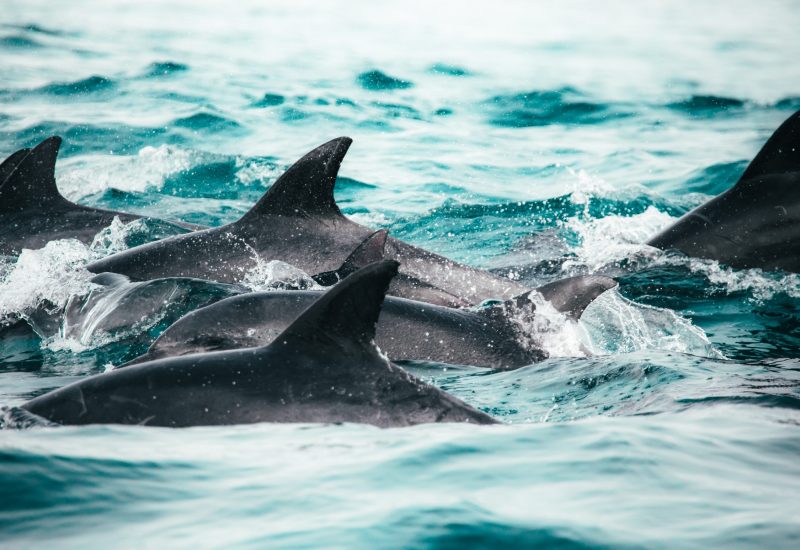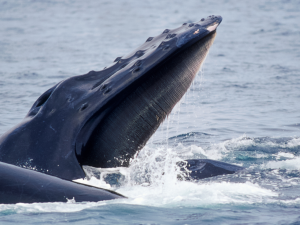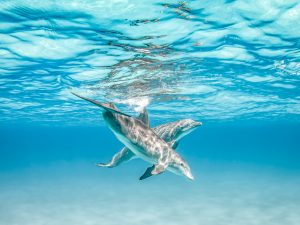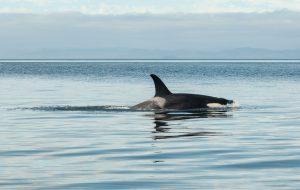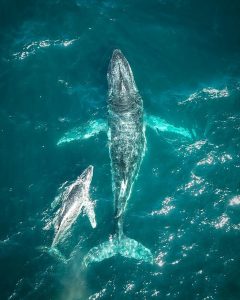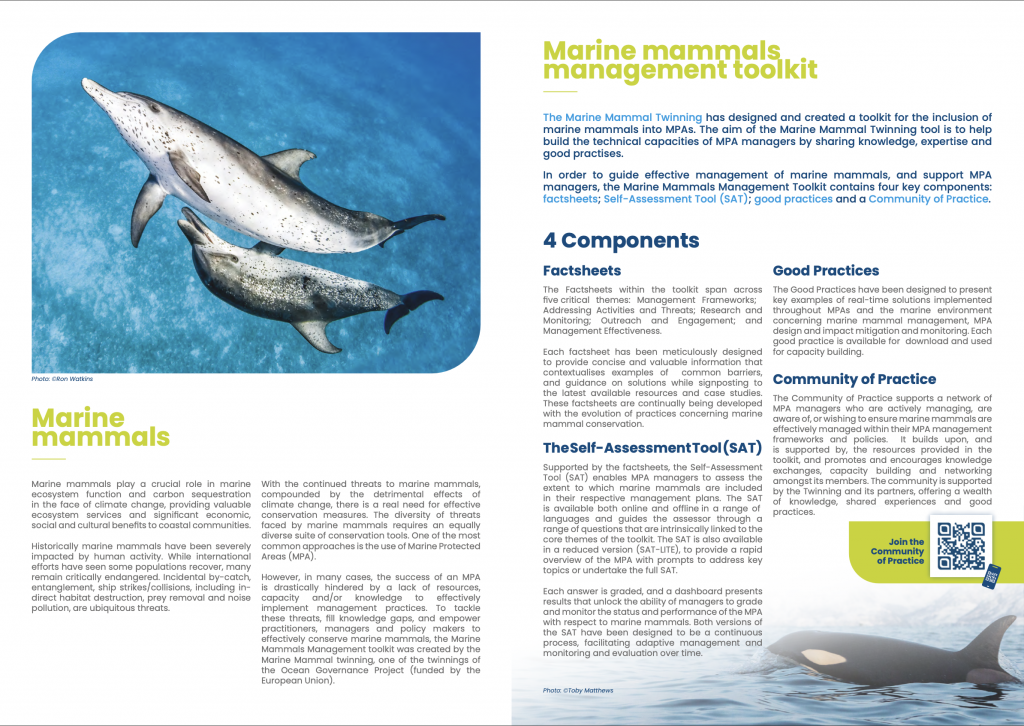Cetaceans, especially dolphins such as Grampus griseus, are particularly prone to build up of persistent chemical toxic substances, such as persistent organic pollutants (POPs) as they are apex predators (at the top of the marine food web). This added to their long lifespan and wide home ranges, makes cetaceans, like Risso’s dolphin, excellent indicator species of environmental chemical pollutants in the Mediterranean Sea. Despite this, ecotoxicological and pathological research on this species of dolphin is scarce for the global population, as well as for the Mediterranean subpopulation.
A new study, recently published in “Marine Pollution Bulletin” analysed the presence and levels of toxic chemicals, such as POPs in samples of tissues of dead dolphins found stranded along the coasts of Italy, collected from 1981 to 2021.
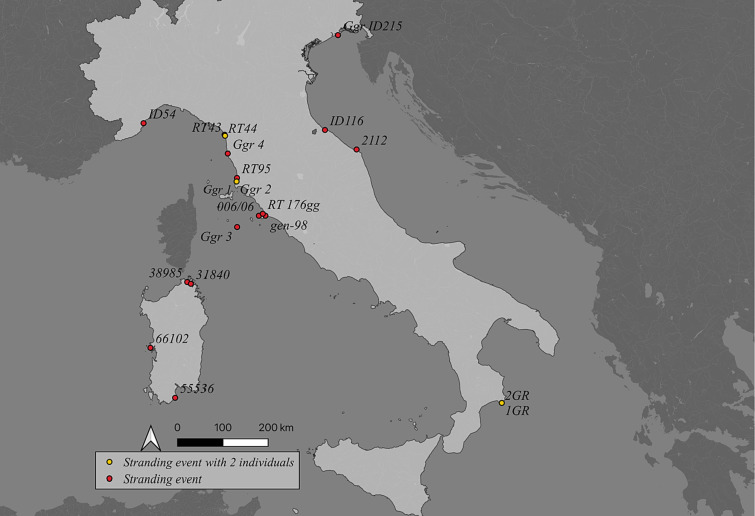
Results found high levels of pollutants in the Mediterranean sub-population of Risso’s dolphin, with male dolphins having higher levels of contaminants, while females had lower, which the authors suggest could be due to females being able to unload pollutants during gestation and lactation to their offspring.
Moreover, when comparing contamination levels with the American sub-population of Risso’s dolphin, Mediterranean dolphins had much higher levels of pollutants. This could be due to the Mediterranean Sea having high levels of environmental contamination, in part due to high numbers of people living along the coast, but also because of the half-closed geomorphology of the basin. Such findings suggest that environmental pollutants are one of the main threats faced by the Mediterranean Risso’s dolphin, contributing to the downward population trend of the Risso’s dolphin sub-species population in Europe, compared with higher numbers globally.
While The Stockholm Convention has regulated these contaminants at a global level since 2001, there are currently no specific conservation measures in place for Risso’s dolphins in the Mediterranean. Researchers hope that this new evidence and understanding of the impact of pollutants on Risso’s Mediterranean Sea could lead to new conservation efforts for this species.
Source: “Science for Environmental Policy”: European commission DG Environment News Alert Service – April 12th 2023

